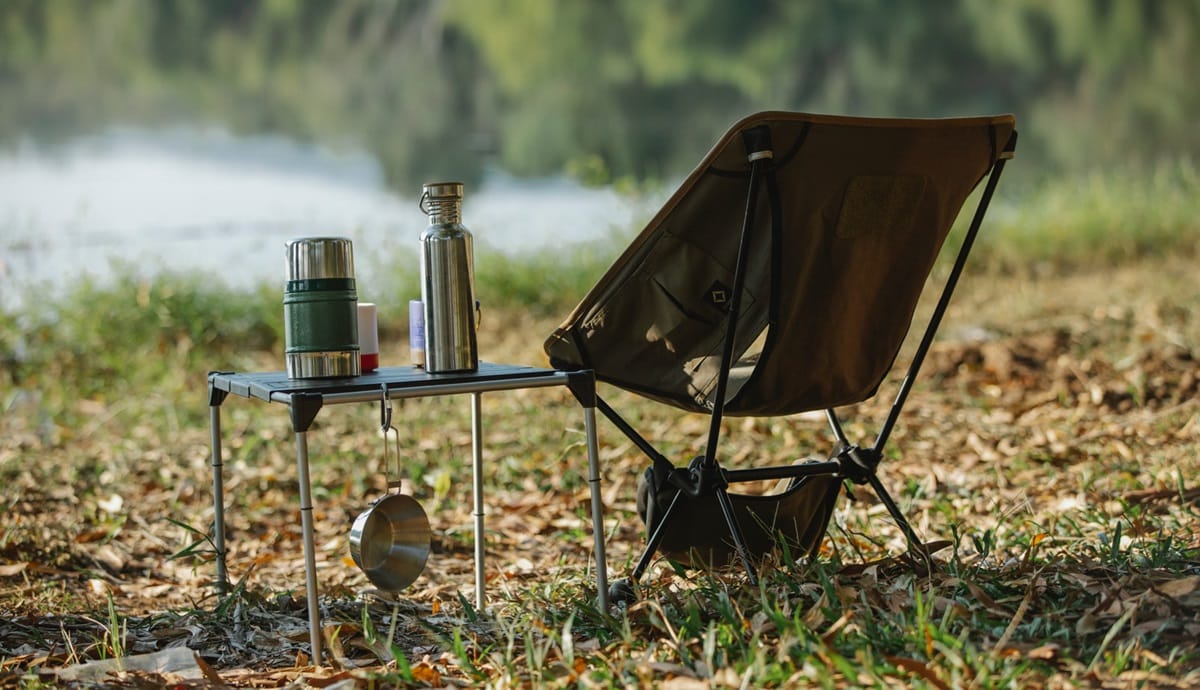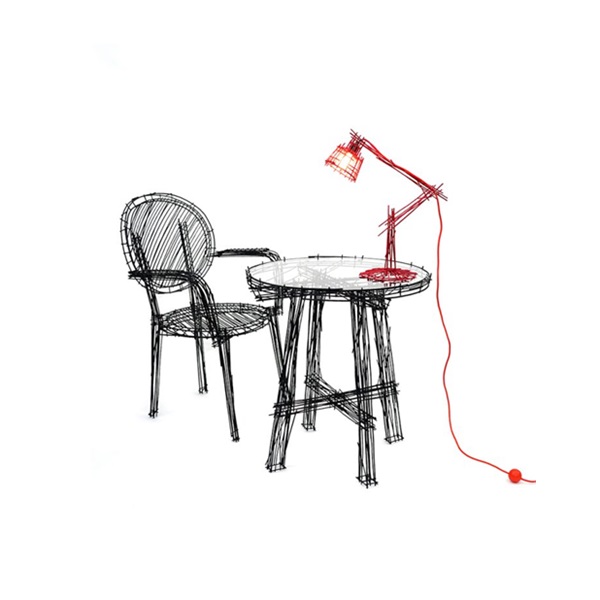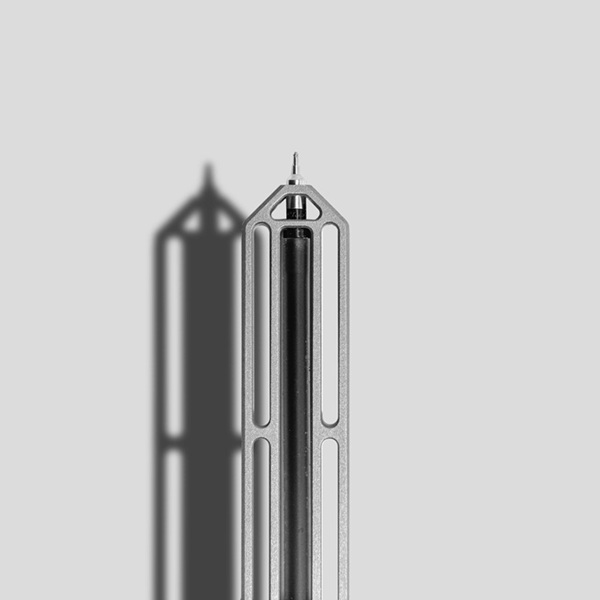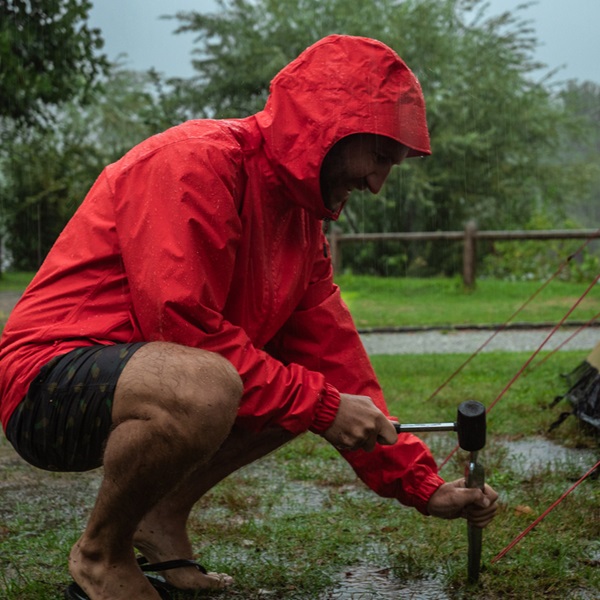
Camping is a wonderful way to connect with nature, but it is essential to minimize our environmental impact during these adventures. Zero waste camping helps preserve the beauty of the great outdoors for future generations. One of the best ways to achieve this is by incorporating reusable camping equipment into your trips.
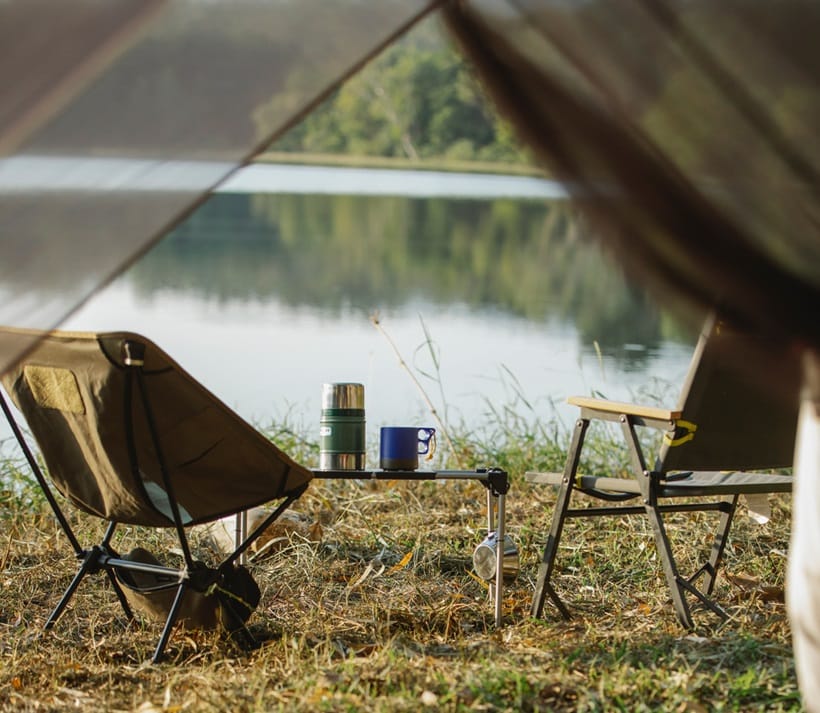
Unlike single-use items, reusable camping equipment reduces waste, saves money, and makes your camping more sustainable. From durable utensils to eco-friendly water bottles, these items can significantly lower your environmental footprint.
If you would like to reduce your footprint during your camping trips, you can follow our guide that we share in this content.
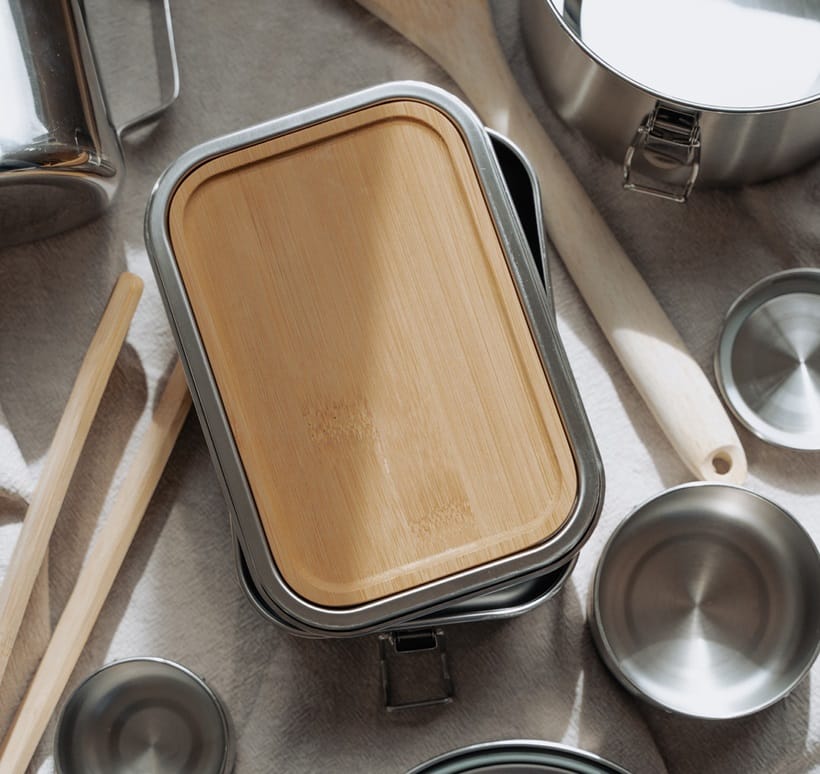
Reusable Camping Utensils
Zero waste camping essentials are essential for reducing waste and enjoying eco-friendly meals in nature. By replacing disposable cutlery and dinnerware with sustainable options, you not only save money in the long run but also help protect the environment.
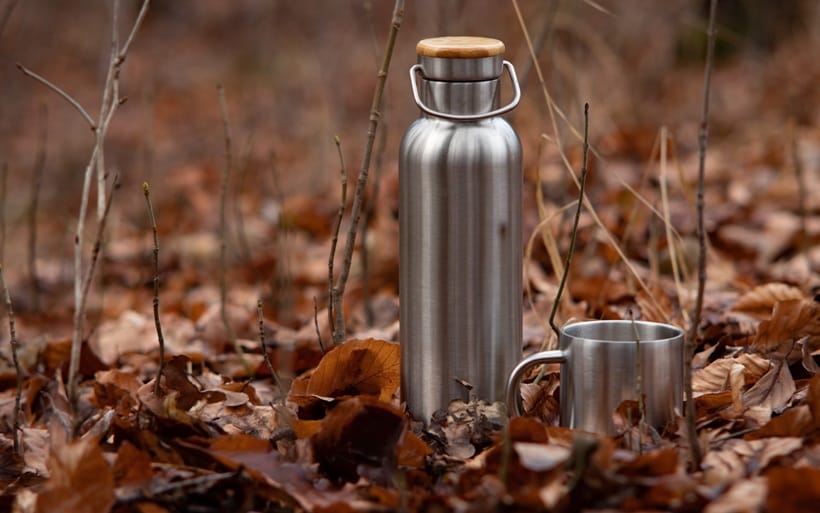
Reusable Plates for Camping
Reusable camping plates made from stainless steel or bamboo are lightweight, durable, and eco-friendly. Stainless steel is non-toxic and resistant to rust, while bamboo is biodegradable and renewable. To extend their life, clean plates immediately after use and store them in a dry place.

Cups
Cups made of silicone or stainless steel are ideal for camping. Silicone cups are collapsible and easy to pack, while stainless steel is long-lasting and heat-resistant. Avoid exposure to extreme temperatures to preserve material quality and longevity.
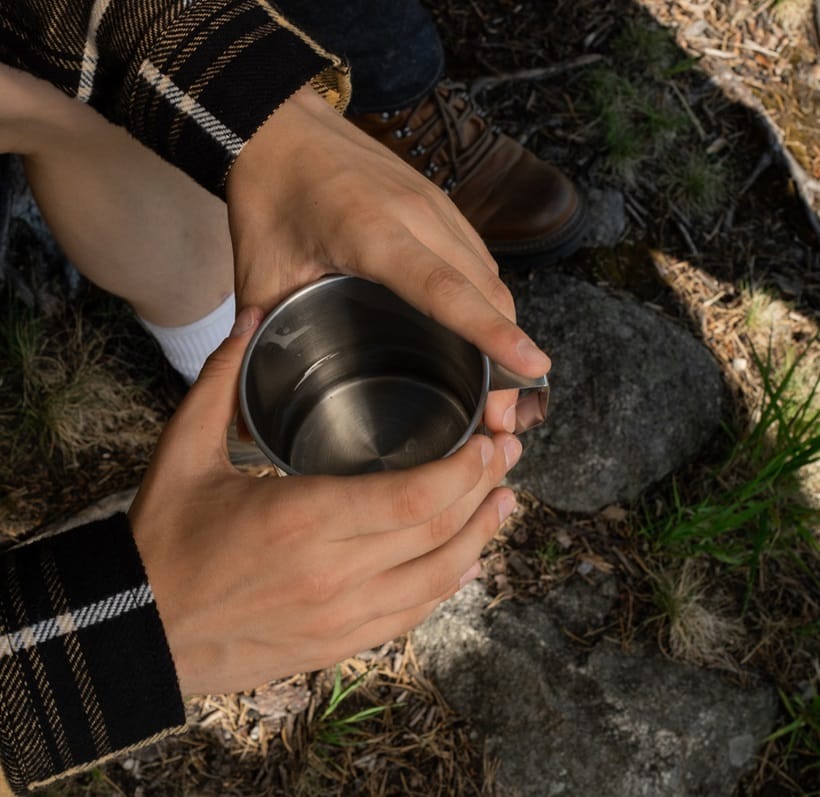
Forks
You can choose forks made of titanium or stainless steel, as both are lightweight, sturdy, and safe for food use. Titanium is particularly corrosion-resistant. Lastly, you should wash forks with biodegradable soap and avoid rough scrubbing to maintain their smooth surface.
Knives
Camping knives crafted from stainless steel or ceramic are practical and eco-friendly. Stainless steel knives are versatile, while ceramic knives retain sharpness longer. You should use a protective sheath and dry thoroughly to prevent rust or damage.
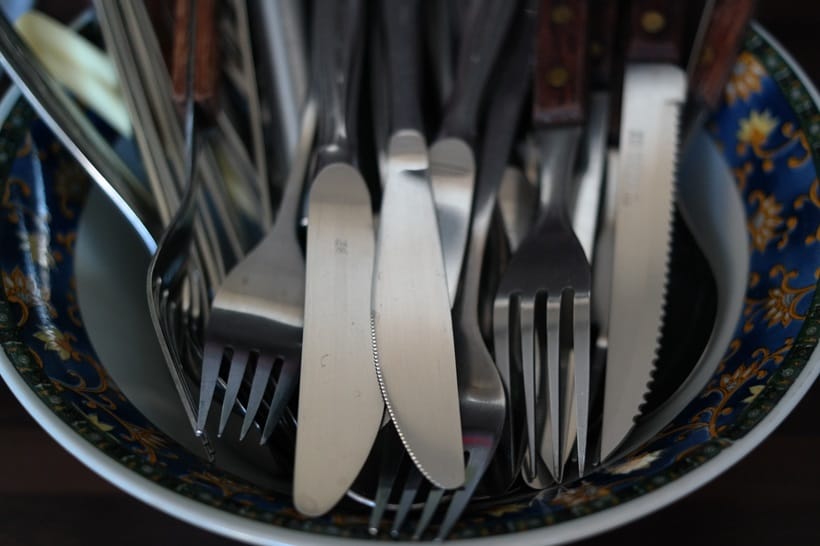
Spoons
Like forks, you can choose stainless steel or titanium spoons, as they are durable, rust-resistant, and easy to clean. As titanium spoons are ultra-lightweight, you may choose titanium if you will go backpacking. To avoid scratches, you can store spoons in a dedicated pouch.
Bowls
Even though it is super easy to use single-use or paper bowls, having zero waste camping bowls is more sustainable in the long term. Reusable bowls made from bamboo or stainless steel are perfect for soups and salads.
Bamboo bowls are lightweight and biodegradable, while stainless steel options are virtually indestructible. You can use stainless steel bowls for a lifetime if you keep them clean and dry. Lastly, you should avoid soaking bamboo bowls in water to prevent cracking.

Straws
It is open to discussion if you ever need straws during camping. However, if you need, you can use reusable straws made from stainless steel or silicone that are excellent alternatives to plastic ones. Stainless steel is perfect for sustainable camping. So, stainless steel straws are highly durable. On the other hand, silicone straws are softer and ideal for cold beverages. To use these reusable camping straws, you should maintain hygiene.
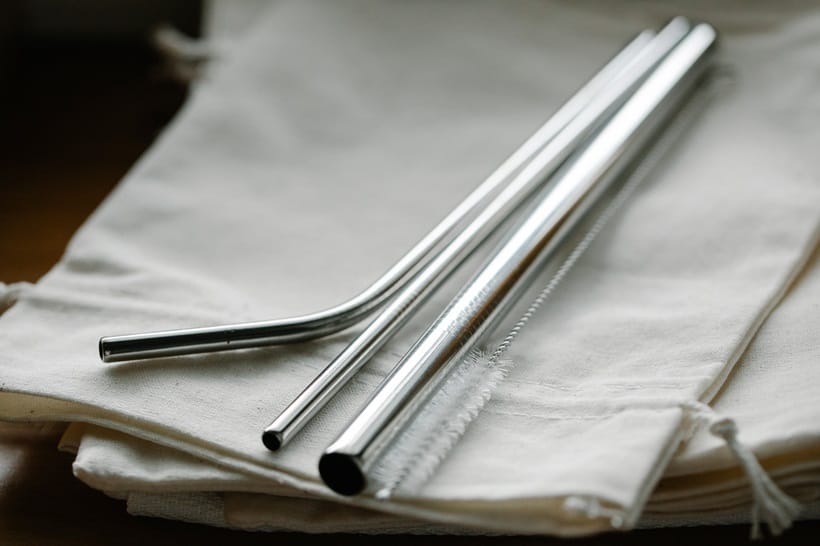
Cutting Boards
You might wonder if there are any disposable cutting boards. Even though cutting boards are equipment that can be used in the long term, you should always choose compact bamboo cutting boards. Because bamboo is lightweight, naturally antibacterial, and sustainable. Keep in mind that you should avoid prolonged water exposure and apply food-grade oil occasionally.

Water Bottles
Camping enthusiasts always look for high-quality water bottles to keep their beverages hot or cold. If you also look for those high-quality bottles, you should check durable, BPA-free, stainless steel water bottles.
If you have a budget, you can choose double-walled bottles for better insulation. Regularly clean with a bottle brush to prevent residue build-up.

Tablecloth
We feel disappointed when we see campers using single-use tablecloths. However, a reusable camping tablecloth adds functionality and sustainability to your outdoor meals. You can look for tablecloths made from durable, eco-friendly materials like organic cotton or recycled polyester. These materials are washable, lightweight, and tear-resistant. To prolong their use, clean after every trip and store in a dry, protective bag to prevent mildew.

Camping Gas Bottle Refill
Opting for a refillable gas bottle reduces waste and saves money during camping trips. Stainless steel or aluminum bottles are sustainable and durable. Refilling instead of discarding single-use canisters helps minimize environmental impact. Always check for leaks and maintain seals to ensure safe, long-term usage of your reusable camping equipment.
Utensil Organizer
After getting reusable camping equipment, you will feel the need to organize it. For such cases, you should also invest in a roll-up organizer made from canvas or recycled fabric to keep your sustainable camping gear. Proper organization prevents items from getting lost or damaged. Wash the organizer as needed to maintain cleanliness.
The Importance of Sustainable Camping
Sustainable camping is not just a trend. In fact, it is a responsibility for nature lovers. By adopting practices like zero waste camping and using reusable camping equipment, you can minimize your environmental footprint while enjoying the beauty of the outdoors. Small actions, such as reducing waste and conserving resources, help protect ecosystems and ensure that future generations can experience unspoiled natural landscapes.

Some of the reasons why zero waste camping is important are listed as follows:
- Litter and waste left behind can harm animals and disrupt their habitats. Zero-waste camping ensures wildlife thrives without human interference.
- Using reusable camping equipment decreases the amount of trash sent to landfills, helping to combat pollution and resource depletion.
- Sustainable camping emphasizes resource conservation, such as water and energy, reducing overall consumption, and preserving the planet’s finite resources.
- Zero-waste camping keeps outdoor spaces clean and visually appealing, allowing everyone to enjoy nature in its purest form.
- Reusing gear and minimizing waste reduces greenhouse gas emissions associated with production and disposal processes.
- Sustainable practices encourage a deeper connection with nature and foster mindful habits that benefit both the environment and personal well-being.
- Investing in durable, reusable camping equipment reduces long-term costs by eliminating the need for disposable items.

